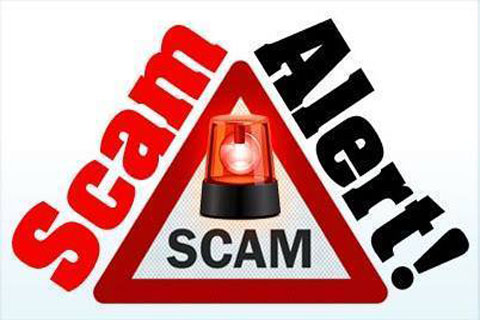Avoiding Hurricane Harvey Charity Scams
The San Diego County District Attorney’s office sent out an alert today to warn San Diego County residents to be careful when donating to charities that promise to help victims of Hurricane Harvey in Texas. The DA’s Office is offering important consumer advice and information to avoid becoming a victim of charity scams. [TWEET THIS]
“We have such a caring community in San Diego County that wants to help those in need during a crisis, like this latest natural disaster that’s taking such a toll in Texas and Louisiana,” DA Summer Stephan said. “Unfortunately, some people use times of crisis to take advantage of others. People who want to help the victims of Hurricane Harvey by donating to charities can protect themselves from scammers by watching out for red flags.”
When donating, it’s a best practice not to respond to any solicitation. Instead, if you are inclined to help – donate on your own to a known charity or help group that is known to assist in these types of events. If the solicitor persuades you to donate, don’t commit at that moment; check them out, first – then donate. Acting based upon a cold call is never wise.
Always do your research to avoid becoming a victim of a charity scam. The Federal Trade Commission has published important tips and information on how to do that, including a link to Charity Navigator, which has a list of organizations that are responding in the aftermath of the storm.
The FTC provides the following charity checklist of precautions to make sure your donation benefits the people and organizations you want to help:
- Ask for detailed information about the charity, including name, address, and telephone number.
- Get the exact name of the organization and do some research. Searching the name of the organization online – especially with the word “complaint(s)” or “scam”– is one way to learn about its reputation.
- Call the charity. Find out if the organization is aware of the solicitation and has authorized the use of its name. The organization’s development staff should be able to help you.
- Find out if the charity or fundraiser must be registered in your state by contacting the National Association of State Charity Officials.
- Check if the charity is trustworthy by contacting the Better Business Bureau’s (BBB) Wise Giving Alliance, Charity Navigator, Charity Watch, orGuideStar.
- Ask if the caller is a paid fundraiser. If so, ask:
- The name of the charity they represent
- The percentage of your donation that will go to the charity
- How much will go to the actual cause to which you’re donating
- How much will go to the fundraiser
- Keep a record of your donations.
- Make an annual donation plan. That way, you can decide which causes to support and which reputable charities should receive your donations.
- Visit this Internal Revenue Service (IRS) webpage to find out which organizations are eligible to receive tax deductible contributions.
- Never send cash donations. For security and tax purposes, it’s best to pay by check – made payable to the charity – or by credit card.
- Never wire money to someone claiming to be a charity. Scammers often request donations to be wired because wiring money is like sending cash: once you send it, you can’t get it back.
- Do not provide your credit or check card number, bank account number or any personal information until you’ve thoroughly researched the charity.
- Be wary of charities that spring up too suddenly in response to current events and natural disasters. Even if they are legitimate, they probably don’t have the infrastructure to get the donations to the affected area or people.
- If a donation request comes from a group claiming to help your local community (for example, local police or firefighters), ask the local agency if they have heard of the group and are getting financial support.
- What about texting? If you text to donate, the charge will show up on your mobile phone bill. If you’ve asked your mobile phone provider to block premium text messages – texts that cost extra – then you won’t be able to donate this way.
The National Do Not Call Registry gives you a way to reduce telemarketing calls, but it exempts charities and political groups. However, if a fundraiser is calling on behalf of a charity, you may ask not to get any more calls from, or on behalf of, that specific charity. If those calls continue, the fundraiser may be subject to a fine.
If you think you’ve been the victim of a charity scam or if a fundraiser has violated Do Not Call rules,file a complaint with the Federal Trade Commission. Your complaints can help detect patterns of wrong-doing and lead to investigations and prosecutions.



